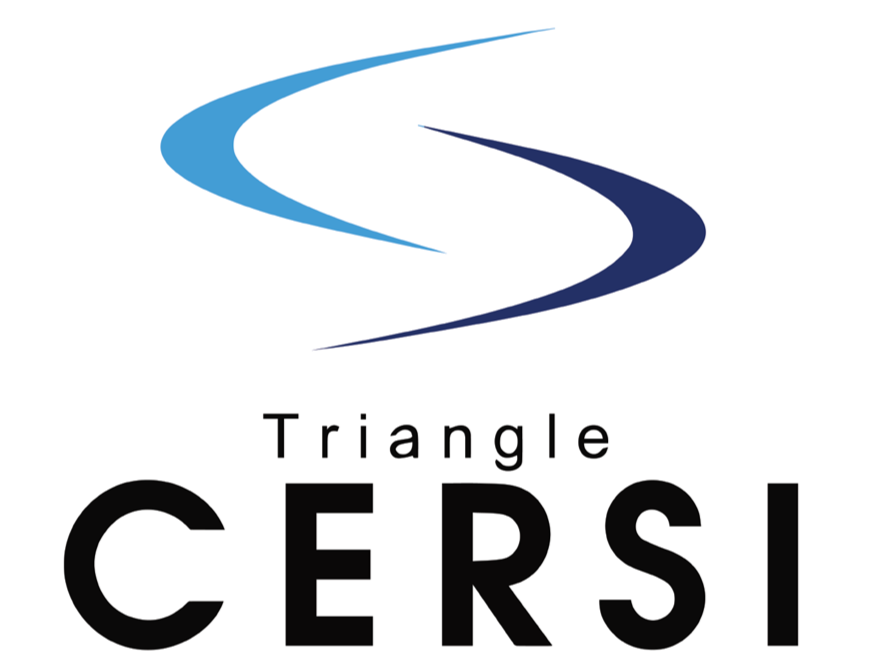May 29, 2024
 Triangle CERSI has made great progress on the first set of funded research projects, including the impact of xylazine when added to fentanyl, efforts to reduce opioid misuse and how to account for data complexities in clinical trials.
Triangle CERSI has made great progress on the first set of funded research projects, including the impact of xylazine when added to fentanyl, efforts to reduce opioid misuse and how to account for data complexities in clinical trials.
Triangle CERSI, awarded to the UNC Eshelman School of Pharmacy, is a joint endeavor that includes the University of North Carolina at Chapel Hill, Duke University, North Carolina State University and North Carolina Central University. It was launched in 2023 with an award from the U.S. Food and Drug Administration (FDA) for up to $50 million over five years and receives support from Eshelman Innovation and the Burroughs Wellcome Fund.
Triangle CERSI is the newest and largest of the CERSI consortiums across the country. It establishes true collaborations between FDA and academic scientists to create new methodological approaches, innovative technologies, and resources that will improve FDA regulatory decisions and guidance documents.
Triangle CERSI project updates include:
This UNC-Chapel Hill project identifies new ways for North Carolina rural pharmacies to help reduce harms from opioid misuse by supporting treatment for opioid use disorder and increasing access to medications that reverse opioid overdoses for all people, regardless of where they live or who they are. Surveys and recruitment materials have been developed and approved by the FDA and data collection begins soon.
Developing a risk prediction engine for relapse in opioid use disorder
This project, which includes a collaboration between Duke University and the Digital Medicine Society (DiMe), is building a protocol for a tool that uses data from digital sensor technologies, like wearable devices, to predict when people affected by opioid use disorder (OUD) might relapse. The team will generate a scientific plan to use consumer technologies and the data they collect to predict relapse and to inform early-intervention strategies to provide every person affected by OUD with the care they need, when they need it most. Preliminary findings from the systematic literature review and first round interviews with clinicians and patients are underway. Next up is to conduct a patient survey study to identify novel digital biomarkers for relapse in OUD.
This UNC-Chapel Hill project uses pharmacological approaches including cellular assays and modeling to examine how xylazine and dexmedetomidine – newer additives being mixed with illicitly-used fentanyl – impact physiological functions. This multifaceted study examines how these drugs interact with receptors in the body, how they affect brain function, respiration and wound development, and how they influence fentanyl’s effects during overdose and withdrawal. The team has been able to characterize the previously unknown pharmacological profile of xylazine toward their goal of helping the FDA better understand how to regulate this compound. The team was also able to present its recent findings to the North Carolina General Assembly.
Principal stratification methods and software for intercurrent events in clinical trials
Intercurrent events, or situations that occur after treatment initiation, like a patient taking a rescue medication or stopping their study drug prematurely, can affect the interpretation of clinical trial data. This Duke project involves the creation of accessible analysis tools, software and educational material for applying the principal stratification method to analyze intercurrent events in clinical trials. The first version of the statistical package, PStrata, has been submitted as a manuscript to the Journal of Statistical Software.
This UNC–Chapel Hill project investigates the prevalence of dosage modifications in patients and the resulting safety and effectiveness profiles of targeted therapies commonly prescribed for patients with Chronic Lymphocytic Leukemia and Chronic Myeloid Leukemia. Data sources have been identified, a data collection plan created, and the statistical analysis plan was approved by the FDA. Data collection is now underway.
Patient reported outcomes are an essential component of the data collected by the FDA to make regulatory decisions but can present methodological challenges in clinical trials. This UNC-Chapel Hill and Duke collaboration seeks to identify the influence of recall periods and make recommendations for recall periods in the measurement of patient reported outcomes in clinical trials. So far, the literature review is complete, and a survey of patients and clinicians is being developed for future data collection. This will influence how the FDA assesses treatment benefit in clinical trials for individuals with episodic conditions to ensure that they obtain reliable estimates of patient-centered outcomes while minimizing response burden.
The Triangle CERSI is also establishing education and outreach missions. It awarded an inaugural scholarship to a UNC Eshelman School of Pharmacy student to enroll in the School’s new masters in regulatory science. In addition, Triangle CERSI investigators have been featured in numerous scientific symposia and in an episode of Taking the Pulse podcast and the center recently co-hosted the Virtual Imaging Trials in Medicine (VITM) 2024 conference at Duke University—a gathering about using computer simulations to predict patient outcomes, including the use of “digital twins”. This first international summit brought together leading experts, researchers and practitioners to serve as a forum to discuss methods, opportunities, challenges, limits and future direction of patient simulations in medicine. Planning is underway for a summit on pediatric drug safety and a workshop on rare diseases.
With so many programs and projects making progress, make sure to stay connected through the Triangle CERSI website, social media channels and mailing list, which are now live with ongoing updates.
Latest News

Rural Health Scholars dream to make a difference

Lisa Tarantino appointed as new Assistant Dean for Research


